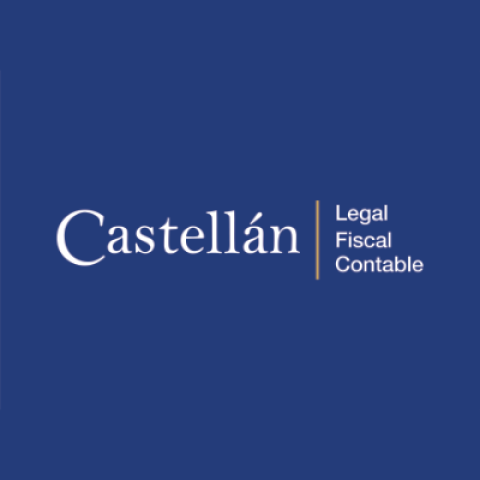Electronic Signature In Uruguay: What You Should Know To Use It
The Law recognizes two types of electronic signature; the simple electronic signature and the advanced electronic signature.
A. Simple electronic signature
The simple electronic signature is the most “basic” type of digital signature, which does not require a special authentication or certification process, and is widely used in everyday online transactions or in agreements between parties that are not located in the same place. physical. It can even be as simple as writing the name of the parties on a digital document or checking a box to indicate acceptance.
The Law defines this category as “data in electronic form attached to an electronic document or logically associated with it, used by the signatory as a means of identification.”
Although the definition is broad, there is a requirement that stands as the central axis in its use: the possibility of allowing the identification of the signing subject. In this way, the parties can choose the type of electronic signature that best suits their needs: from users and passwords, the use of applications, biometrics, “OTP” codes, etc., provided that the use as a means of identification is comply.
For the simple electronic signature to have legal effectiveness, the Law requires that it be accepted as valid by the parties that use it, or have been accepted by the person to whom the document is objected.
This translates into the inclusion of a contractual clause where the parties recognize the validity of the electronic signature used, defining the conditions under which said type of signature will be accepted, to avoid setbacks in the execution of the contract or difficulties in interpretation.
An adequate draft of the contractual clause should then contain:
-
express acceptance of its use by the parties,
-
express identification of the technology or mechanism to be used for the signature (e.g. OTP code, etc.),
-
proof that its use will have the same validity and will produce the same legal effects as the “physical”, handwritten or handwritten signature.
It is important to note that, as there is no “external” control that guarantees the identity of the signatory – as happens with the advanced signature – in the event that the simple electronic signature is unknown to one of the parties, it will be the responsibility of the other. part of proving its validity as a manifestation of the will of those who claim to ignore it.
For practical purposes then, the simple electronic signature will be equivalent to a handwritten/handwritten signature without signature certification or reliable identity verification.
B. Advanced electronic signature
It is an electronic signature that uses more robust authentication and security mechanisms, often using technologies such as digital certificates issued by trusted certification authorities.
It is used in transactions and documents that require a higher level of security and trust, as it usually complies with the specific standards and regulations of different jurisdictions.
Under Uruguayan law, the advanced electronic signature will be one that meets the following requirements:
-
allow the unique identification of the signatory;
-
be created by means that the signatory can maintain under its exclusive control;
-
be susceptible to verification by third parties;
-
be linked to an electronic document, in such a way that any subsequent alteration is detectable;
-
have been created using a technically secure and reliable device, and
-
be based on a recognized certificate valid at the time of signing.
For the operation of this type of firm, and with the objective of generating “external” control, the Law has created the figure of the “Accredited Certification Services Provider”.
These are advanced electronic signature service providers, duly registered with the Electronic Certification Unit (UCE), who comply with certain security and control requirements required by regulations. In other words, they will be the ones in charge of validating the identity of the signer.
The advanced electronic signature will have the same validity and effectiveness as the handwritten signature in a public or private document with certified signatures, so - unlike the simple one - it does not require a prior agreement between the parties to be accepted. That is, a contractual clause will not be necessary to consider it valid.
The law equates the certainty of the advanced electronic signature to the intervention of a notary public, in terms of verifying the identity of the signer.
It is important to note that the advanced electronic signature will not provide proof of the date the signature was granted, unless the service provider expressly provides the electronic dating service.
International recognition of electronic signature
At an international level, not all legal systems recognize the use of a simple electronic signature as a valid mechanism for issuing consent, as opposed to a handwritten signature. Some even, while admitting its use, restrict it to certain types of contracts or impose limitations, so that, sometimes, its use may not be advisable for agreements of a certain size.
For its part, the advanced electronic signature generally enjoys greater international recognition, as many countries have adopted specific standards to support and recognize its legal validity, even entering into mutual recognition agreements in terms of validity and evidentiary criteria.
On December 5, 2019, within the framework of the 55th Summit of Mercosur presidents, the bloc approved the “Agreement on Mutual Recognition of Digital Signature Certificates” (the “Agreement”), marking a milestone in the digital integration of the region.
Said Agreement establishes the recognition of Digital Signature certificates issued by accredited certification service providers or licensed certifiers in any Mercosur country. Thus, digital signatures - understood as what we define as advanced electronic signatures - issued in Uruguay, obtain the same legal and evidentiary value as handwritten signatures in all countries of the bloc (and vice versa).
Until last week, this agreement had only been ratified by Argentina, Paraguay and Uruguay. However, on April 3, 2024 , the Agesic (Agency for Electronic Government and Information and Knowledge Society) spread the news that Brazil had finally approved the Agreement, thus culminating a significant regional process that allows recognition between the four founding countries of the bloc.
Final thoughts
There is no doubt that the electronic signature has gained more and more ground in the business world due to the growing internationalization of activities and the need to reduce procedures, costs and time.
For several years now, Uruguay has had a solid regulatory framework to allow its use and, at the same time, provide legal certainty for the parties involved.
For their part, the agreements adopted at the international level for the mutual recognition of digital signature certificates facilitate a secure, reliable, transparent and efficient cross-border exchange that, we believe, allows for streamlining transactions and boosting business productivity and competitiveness.
In this context, we celebrate the recent adoption of the Mercosur Agreement by Brazil, as it constitutes another milestone in the process of eliminating barriers to exchanges, without leaving aside the necessary security and guarantees.

